Redditor Called A POS And "Fake Cat Lover" For Gaming Instead Of Crying With Her Abusive BF After His Cat Died
People often find it hard to recognize that they are in an abusive relationship; abuse of any kind is often hard to identify. This is especially true for emotional abuse, which can involve toxic and sometimes sophisticated mind games. As Dr. Alexandra Solomon, a relationship therapist, states, "Emotional abuse can be insidious, often leaving no visible scars, yet it can deeply affect a person's self-worth." Physical abuse is easier to identify and often comes with tangible evidence of violence. Emotional abuse can be just as damaging, especially since it's so hard to pinpoint. Getting an outsider's point of view can help you identify the problem and eventually put an end to it. According to Dr. William Doherty, a family therapist, "Having an objective perspective can illuminate patterns of behavior that may be harmful." That's how you avoid getting brainwashed and being forced to live with abuse without ever second doubting it. A Redditor who goes by the username u/Illustrious-Rub-4667 made a post on the r/AmItheA**hole subreddit, where she explained how her abusive boyfriend had an extreme reaction to what she chose to do with her time after his cat died. The boyfriend called her a "fake cat lover" for not crying with him over the death of his cat. The Reddit community had a lot of different reactions to the user's post. Scroll down to check out the full Reddit post, and scroll a little further to read the comments from the original post.
Here's the original post by Reddit user u/Illustrious-Rub-4667:
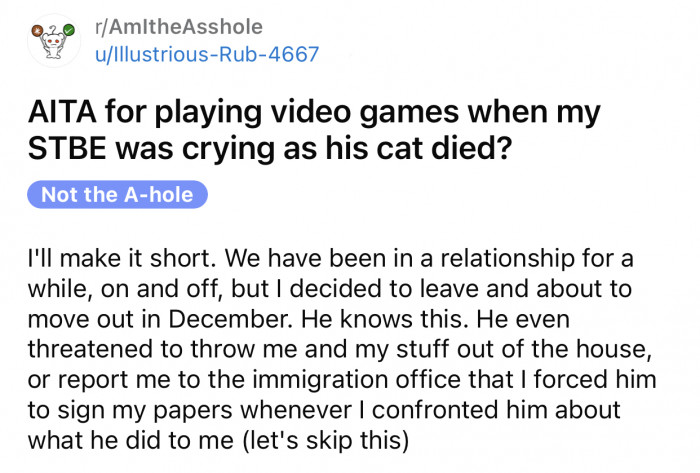
OP's BF eventually started ignoring the cat's strict diet.

OP knew something had happened after seeing her boyfriend in tears.
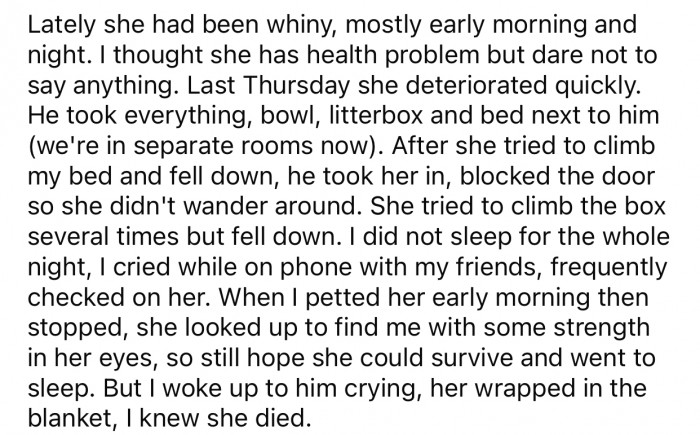
Exploring Emotional Responses to Grief
Grief can elicit a wide range of emotional responses, and understanding these reactions is crucial. Dr. Elisabeth Kübler-Ross, a pioneer in grief research, explains that each individual processes grief differently, often leading to misunderstandings in relationships.
Research published in the American Journal of Psychology indicates that individuals may respond to grief with a variety of coping mechanisms, which can sometimes conflict with those of loved ones.
Understanding Emotional Reactions
Emotional reactions can often stem from underlying issues, particularly in relationships characterized by conflict. Dr. John Gottman, a leading relationship researcher, emphasizes that unresolved emotional needs can lead to heightened sensitivity and reactivity in interpersonal interactions.
His studies indicate that individuals who feel unsupported may react strongly to perceived slights, often amplifying the conflict rather than resolving it.
OP didn't know how her BF would react to her approaches.

OP was expressive while playing video games but never expected her BF to react the way he did.

OP's boyfriend got pretty angry and had an extreme reaction.

Feeling pressured to grieve in a specific way can add to the emotional burden. A psychologist specializing in grief counseling notes that societal norms often dictate how one should express their sorrow, which can lead to feelings of inadequacy.
Studies suggest that individuals who feel they must conform to these norms may experience heightened feelings of isolation and frustration.
Research in the Journal of Personality and Social Psychology illustrates that emotional dysregulation can lead to impulsive behaviors during conflicts. Individuals who struggle to manage their emotions may engage in unhelpful patterns, such as lashing out or withdrawing.
Recognizing these emotional triggers is essential for developing healthier responses in relationships.
The boyfriend's reaction made OP doubt the way she dealt with the situation, so she decided to consult with the Reddit community:

Here's how the Reddit community reacted to u/Illustrious-Rub-4667's post:
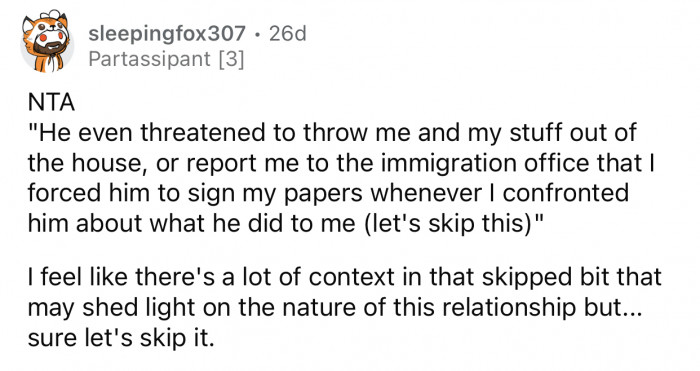
OP's behavior was completely normal.
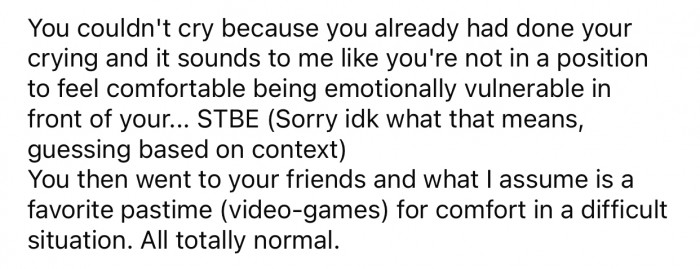
Recognizing Individual Grieving Processes
Each person's grieving process is unique, and recognizing this is crucial for supporting loved ones. Dr. Alan Wolfelt, a noted grief counselor, emphasizes that understanding differing grieving styles can enhance empathy and support.
According to his research, individuals who honor their own grieving process while allowing others to do the same tend to experience healthier emotional outcomes.
The Role of Communication in Relationships
Effective communication is essential for navigating conflicts in relationships. Dr. Brené Brown, known for her work on vulnerability, highlights that open dialogue fosters understanding and connection.
Her research suggests that when individuals feel safe to express their emotions, it can lead to deeper intimacy and more constructive conflict resolution.
OP's BF had an overaction to what happened.
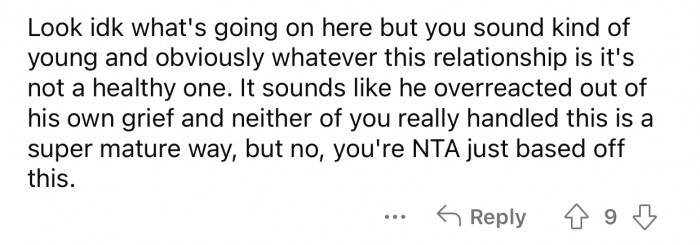
OP found herself in a pretty weird situation because of her boyfriend's decision.
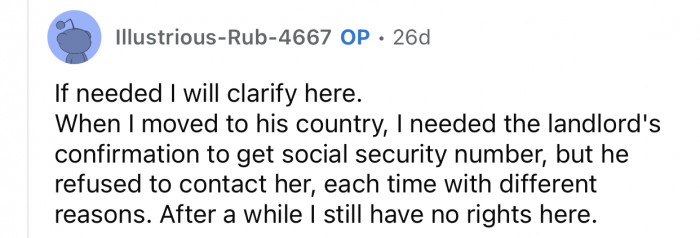
OP's boyfriend doesn't treat her well and is even racist to her.
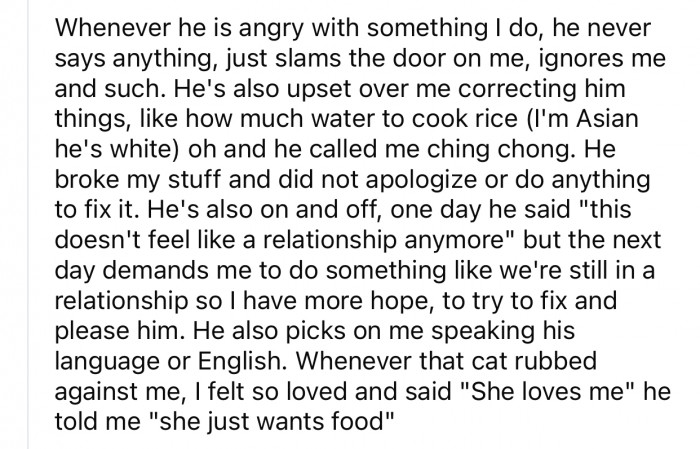
Communication is key in navigating these emotional waters. A communication expert suggests that discussing feelings openly can reduce misunderstandings and promote connection.
Research indicates that transparency in communication fosters trust and strengthens relationships, especially during difficult times.
To enhance communication, individuals can practice using 'I' statements, which allow them to express their feelings without placing blame on their partner. For example, saying 'I feel hurt when...' can facilitate a more productive conversation rather than escalating the conflict.
Additionally, taking time to cool down before addressing a heated issue can prevent impulsive reactions and foster a more thoughtful exchange.
The boyfriend got even more aggressive after OP confronted him about his behavior.
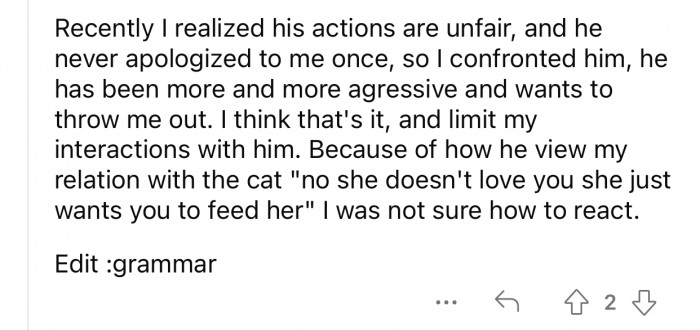
OP made the right choice by leaving.
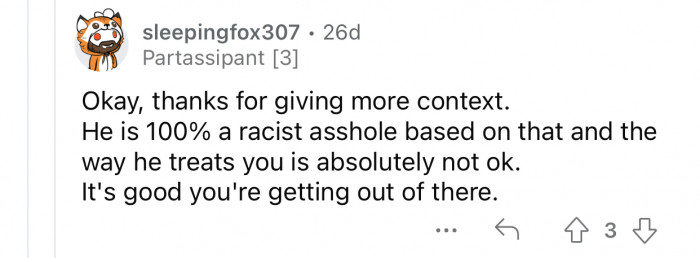
The loss of a pet is a hard thing to deal with.
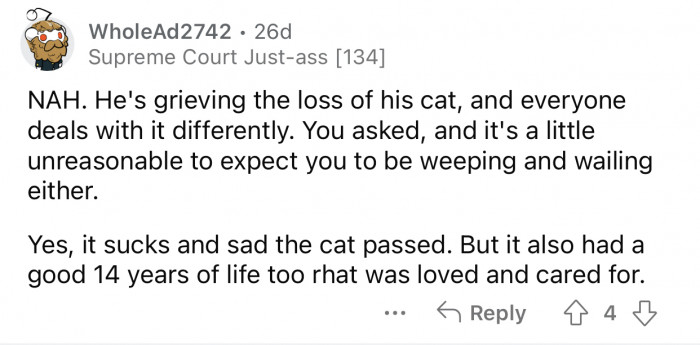
The Importance of Self-Care During Grief
Self-care is essential during times of grief. A psychologist specializing in emotional health emphasizes that individuals need to prioritize their well-being to navigate their grieving process effectively.
Research shows that engaging in self-care practices can significantly reduce feelings of anxiety and depression, allowing individuals to process their emotions more healthily.
Emotional Needs and Relationship Dynamics
Understanding emotional needs is crucial to fostering healthy relationships. A clinical psychologist notes that individuals often react defensively when they feel their needs are not being met.
Recognizing these patterns can empower partners to navigate conflicts more effectively, allowing for greater understanding and empathy between them.
I guess that's one way to say it.

OP should get out of there as soon as possible.
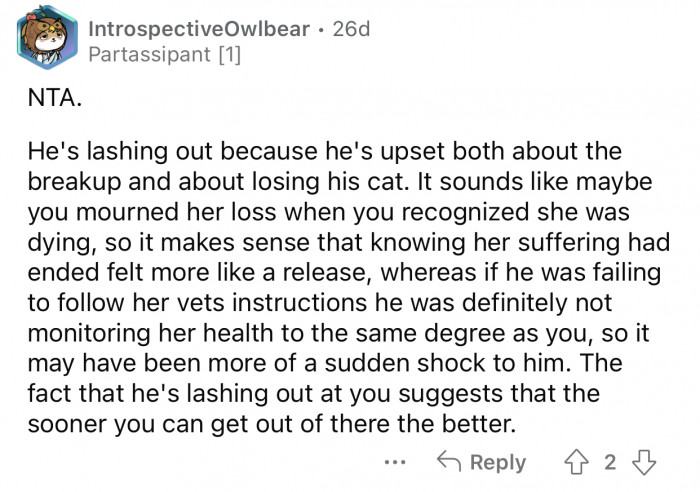
OP can sue her boyfriend if he's planning to illegally evict her.

In conclusion, addressing emotional responses requires a thoughtful approach to communication and self-awareness. Research indicates that prioritizing open dialogue and understanding each other's emotional needs can lead to healthier relationships.
By embracing vulnerability and addressing conflicts directly, individuals can strengthen their connections and foster a more supportive environment.
The boyfriend doesn't take OP's opinions seriously.
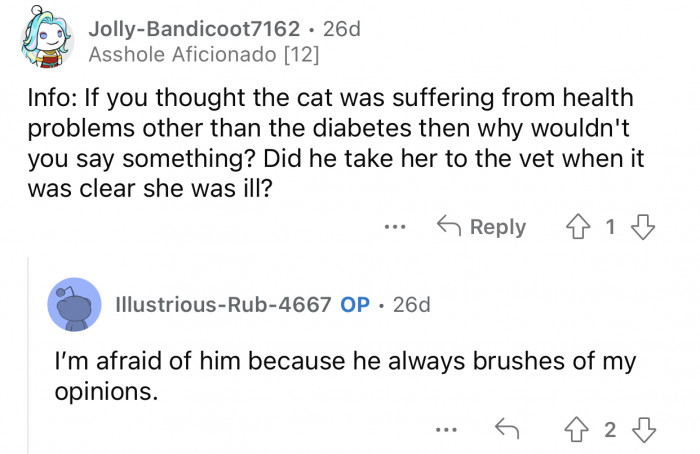
Grief is never easy to deal with.

"There’s nothing unreasonable about you finding distraction and comfort from your pain in playing games with people who love you."
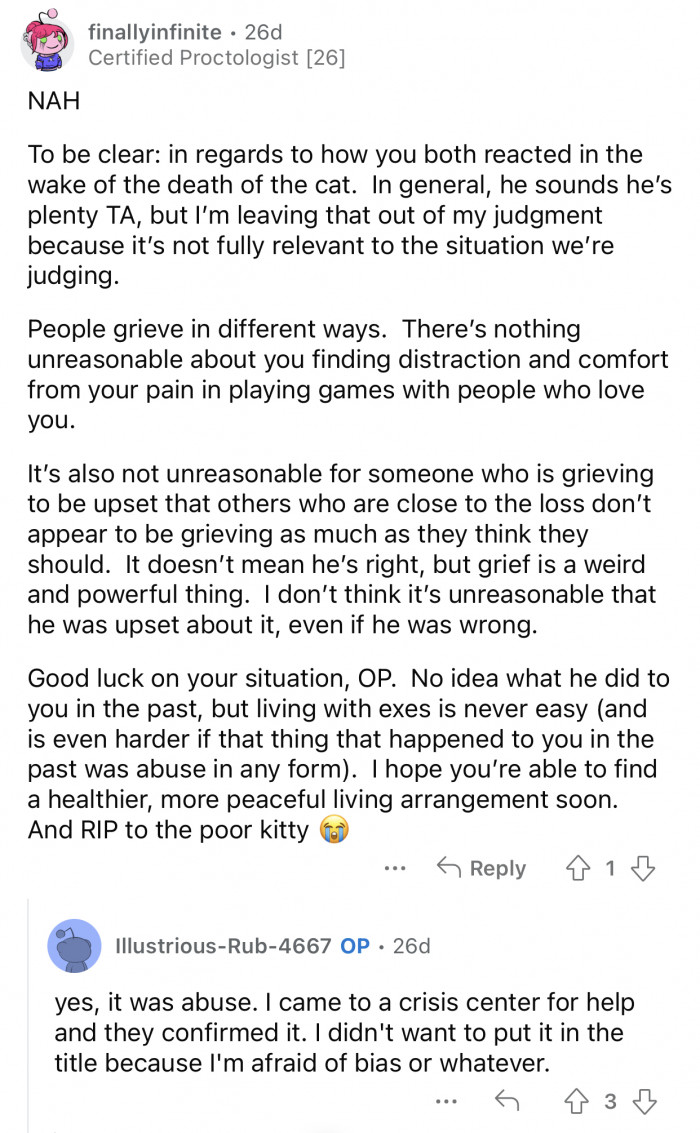
OP should get out of there as soon as she possibly can; her boyfriend obviously doesn't care about her and abuses her on a regular basis. She will only suffer as long as she lives under his roof. If you enjoyed reading this, make sure to check out similar content on our platform.
Psychological Analysis
This scenario illustrates how emotional reactions can complicate relationships, especially when one partner feels unsupported. It's crucial for individuals to recognize their emotional needs and communicate them effectively to foster healthier interactions.
By prioritizing open communication, partners can work towards resolving conflicts and strengthening their relationship.
Analysis generated by AI
Analysis & Alternative Approaches
Psychological research emphasizes the importance of communication and emotional understanding in managing conflicts. According to Dr. William Doherty, a family therapist, "Effective communication is the cornerstone of any healthy relationship, particularly during times of emotional distress." Prioritizing emotional needs can significantly enhance relationship satisfaction, as noted by Dr. Tal Ben-Shahar, a happiness researcher who states, "Empathy and open dialogue are essential for navigating interpersonal challenges and strengthening connections."
Analysis & Alternative Approaches
Ultimately, understanding the complexities of grief can lead to healthier relationships and emotional processing. Research underscores the importance of recognizing individual grieving styles and fostering open communication during difficult times.
By prioritizing self-care and empathy, individuals can navigate their grief more effectively while supporting others.



